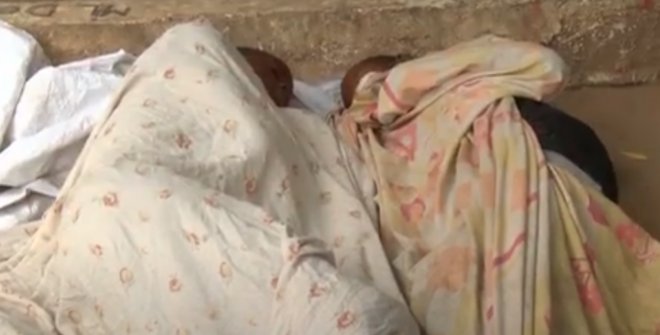|
|
|
Angola Street Children |
Angola Street Children |
Angola Street Children | Angola Street Children |
Details of how to sponsor a child in Angola with child sponsor organisations, programs and projects.
More >
For information, videos and photos about the country of
Angola, check out our Angola profile pages.
More >
|
|

|
As night falls many of these children head for the old crumbling sewers built a century ago by the Portuguese that form a complex maze under Luanda, where the kids compete with rats for scraps of food. As daybreak dawns it's back onto the streets and a life of hawking merchandise, washing cars or simply begging or stealing to survive and buy drugs or gasoline to sniff, an habitual way to escape reality and pain, putting themselves at even further risk of abuse including sexual exploitation. In Angola police round-ups of street children are not legal unless they can demonstrate any such round-up is in order to execute a judicial order or warrant, where there are unauthorised gatherings, in case of public danger or emergency or where there is disturbance of the public order. Police in the country are genrally wary of the street children as officers who make arrests without demonstrable due cause can be held criminally responsible for abuse of authority. As in many countries, these street children in Angola have few opportunities to escape this cycle of deprivation and live without access to education or medical care. Nearly 70% of births are not registered in Angola effectively meaning these children do not exist in the eyes of the authorities so when many 'disappear' no-one notices save for the others in the gangs they belong to. There are a number of agencies attempting to provide support for these children, but their main potential support, their families, are often not there having been killed, displaced, or are too poor to take back yet another mouth to feed in a country where around 68% live on less that $2.00 a day. Street children in Luanda face the sternest difficulties where many existing families live in slum housing with little to discard to feed the hungry mouths of street children who live on the streets of one of the most expensive and dangerous cities on earth. In fact, according to Mercer's Annual Cost of Living Index, Luanda is the world's most expensive city. Renting a two-bedroom apartment there costs $6,800 a month on average, precluding the possibility of homeless children ever finding proper accommodation outside projects and programs established to help them survive. The video (below) gives some insight into the lives of street children in Angola together with projects and programs working with street children in the country. |













